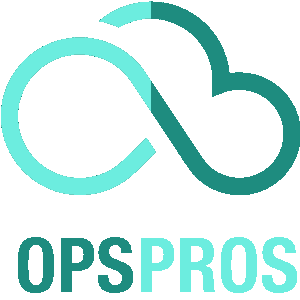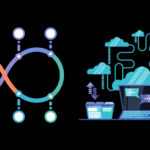
Demystifying DevOps simplifies the complex world of continuous integration. Achieve faster deployments and higher quality with our insights.
In today’s fast-paced and highly competitive world, organizations need to stay agile and innovative to remain competitive. DevOps is a set of practices designed to help organizations achieve just that.
So, what is DevOps, exactly? DevOps is a cultural and organizational shift that aims to maximize collaboration and communication between development and operations teams.
By breaking down silos and creating a more unified approach to software development and deployment, organizations can accelerate time to market, reduce errors and downtime, and deliver more value to customers.
Defining DevOps
DevOps is a term that combines the words “development” and “operations”. It refers to a set of practices and principles that aim to break down silos between software development, testing, and deployment, creating a more efficient and collaborative environment.
DevOps draws on a range of methodologies and tools to achieve these goals, including continuous integration and delivery (CI/CD), infrastructure as code (IaC), and containerization. By automating processes and increasing visibility into changes, DevOps helps teams reduce errors, minimize downtime, and deploy new features more quickly.
The Benefits of DevOps

DevOps has become increasingly popular in recent years, and for good reason. By adopting DevOps practices, organizations can realize a wide range of benefits and advantages that can help improve their software development and deployment processes. So, why use DevOps? Here are some of its key advantages:
- Improved collaboration: DevOps fosters a culture of collaboration and communication between software development and operations teams, leading to better coordination and faster, higher-quality software delivery.
- Increased efficiency: By automating manual processes and emphasizing continuous integration and delivery, DevOps helps organizations streamline their development and deployment workflows, resulting in faster time-to-market and greater efficiency.
- Better quality: With its emphasis on testing and continuous feedback, DevOps can help improve software quality by catching bugs and issues earlier in the development cycle.
- Greater agility: DevOps practices allow organizations to respond more quickly to changing customer needs and market conditions, enabling them to stay ahead of the competition.
- Cultural transformation: Implementing DevOps often requires a shift in organizational culture, with an increased focus on collaboration, transparency, and continuous learning and improvement. This can lead to a more engaged and motivated workforce and a more innovative and adaptive organization overall.
These are just a few of the many benefits of DevOps. By embracing DevOps principles and practices, organizations can transform their software development and operations, leading to better software, happier customers, and a more successful business overall.
The DevOps Lifecycle
The DevOps process can be broken down into several stages that work together to enable the rapid and efficient delivery of software applications. These stages are collectively known as the DevOps lifecycle.
1. Plan
The planning stage involves identifying the software requirements and creating a roadmap for the development process. It includes creating user stories, defining milestones, and setting project goals.
2. Code
The code stage involves the actual development of the software application. This stage includes writing and testing code, managing source code, and ensuring version control.
3. Build
The build stage involves compiling the code into executable forms and creating build artifacts. This stage also includes testing and verifying the build to ensure it meets the specified requirements.
4. Test
The test stage involves comprehensive testing of the software application to identify and address any issues or bugs. This stage includes both automated and manual testing, and may involve collaboration between developers and quality assurance teams.
5. Deploy
The deploy stage involves the actual deployment of the software application to a live environment. This stage includes configuration management, deployment automation, and monitoring to ensure the application is functioning as expected.
6. Operate
The operate stage involves ongoing maintenance and support of the software application. This stage includes monitoring, troubleshooting, and continuous improvement to ensure the application is meeting the needs of its users.
The DevOps workflow is designed to enable seamless collaboration and communication between cross-functional teams, from development to operations. By breaking down silos and promoting a culture of continuous improvement, organizations can achieve faster and more reliable delivery of software applications.
Key DevOps Principles and Practices

DevOps is all about the application of certain methodologies and best practices in software development and operations to achieve faster and more reliable product delivery. Here are some of the key DevOps principles to follow:
- Continuous Integration (CI): By continuously integrating new code changes into the main code branch, teams can identify and resolve issues early on, reducing the risk of catastrophic failures during product delivery.
- Continuous Delivery (CD): With continuous delivery, teams aim to automate the entire release process, from building, testing, and staging to deploying and verifying in production.
- Infrastructure as Code (IaC): Using code to describe and manage infrastructure allows teams to achieve high degrees of automation, repeatability, and consistency.
- Automation: Automating repetitive and error-prone tasks can eliminate human error and free up time for more creative work.
- Collaboration: DevOps encourages collaboration between teams to promote transparency, communication, and knowledge sharing.
Moreover, it’s important to follow best practices when implementing DevOps:
- Version Control: Keeping track of code changes helps prevent errors and allows for rollbacks if necessary.
- Testing: Automated testing ensures that code changes do not break existing functionality and catch issues early on.
- Monitoring and Logging: Proactively monitoring systems and applications and collecting logs can quickly identify issues and help teams troubleshoot problems.
- Security: Embedding security practices into all stages of the development process helps protect against potential threats.
- Continuous Learning and Improvement: Adopting a culture of continuous learning and improvement helps teams stay agile and adapt to changing technologies and business needs.
DevOps Methodologies: Agile, Lean, and ITIL
DevOps is heavily influenced by three primary methodologies: Agile, Lean, and ITIL.
Agile emphasizes the importance of iterative development, collaboration, and customer feedback to improve product delivery. Lean focuses on eliminating inefficiencies and waste in the development process to achieve greater efficiency and speed. ITIL provides a framework for managing IT services, including incident management, problem management, and change management.
By incorporating the principles and practices from these methodologies, organizations can achieve more effective collaboration, faster time-to-market, and higher-quality products.
DevOps Tools and Technologies
When it comes to DevOps, the right tools and technologies can make all the difference. By automating certain processes and providing developers and operations teams with greater visibility into the development process, DevOps tools can help organizations release higher-quality software at a faster pace.
There are a variety of DevOps software options available, each with their own strengths and weaknesses. Some of the most popular DevOps tools include:
| Tool | Description |
|---|---|
| Ansible | A configuration management tool that allows developers to automate the deployment and configuration of applications and infrastructure. |
| Docker | A containerization platform that makes it easy to build, package, and deploy applications in a consistent, portable manner. |
| Jenkins | A continuous integration and continuous delivery (CI/CD) tool that allows teams to automate the build, test, and deployment processes. |
| Nagios | A monitoring tool that provides real-time visibility into the health and performance of IT systems and infrastructure. |
In addition to these popular tools, there are a variety of other DevOps technologies that can be used to support software development and deployment, such as:
- Configuration management systems like Chef and Puppet
- Infrastructure as code (IaC) tools like Terraform and CloudFormation
- Collaboration tools like Slack and Jira
By leveraging these tools and technologies, organizations can streamline their development and deployment processes and gain a competitive edge in the marketplace.
Implementing DevOps in Your Organization

Now that you understand the benefits of DevOps and the key principles and practices involved, it’s time to start thinking about how to implement it in your organization. While the process may seem daunting at first, with careful planning and execution, your team can successfully adopt DevOps methodologies.
Getting Started with DevOps
The first step in implementing DevOps is to assess your current development and operations processes. Identify areas where there are bottlenecks or inefficiencies and determine how implementing DevOps can help to improve these processes.
Next, it’s important to establish a clear understanding of the goals and objectives for your DevOps implementation. This includes selecting the right tools and technologies for your team, setting realistic timelines, and gaining buy-in from stakeholders across the organization.
DevOps Adoption
One of the biggest challenges in implementing DevOps is overcoming resistance to change within the organization. To successfully adopt DevOps, it’s important to prioritize communication and collaboration among all teams involved in the software development and deployment process.
Start by establishing a DevOps culture that emphasizes open communication, teamwork, and continuous learning and improvement. Encourage your team to embrace new ideas and processes, and provide the necessary training and resources to support their success.
DevOps Implementation
Once you have established a clear understanding of your goals and objectives and gained buy-in from stakeholders, it’s time to begin implementing DevOps practices. Start by adopting a continuous integration and continuous delivery (CI/CD) approach to software development.
Automate as much of the software development and deployment process as possible, using tools such as version control systems, build automation tools, and deployment automation tools. This will help to increase efficiency and reduce the risk of errors or inconsistencies.
Finally, establish a culture of continuous learning and improvement, encouraging your team to regularly evaluate and refine their processes to ensure continued success.
Continuous Learning and Improvement in DevOps

DevOps is more than just a set of practices and tools. To truly succeed, it requires a cultural shift within an organization. This means embracing a DevOps mindset that values continuous learning and improvement.
One key aspect of this mindset is the concept of blameless postmortems. Instead of seeking to assign blame for a failure, the focus is on learning from the experience and identifying ways to prevent similar incidents from occurring in the future. By fostering a blameless culture, teams can feel more comfortable taking risks and experimenting with new approaches.
Another important principle of the DevOps culture is the use of feedback loops. This involves gathering feedback at every stage of the development process, from planning to deployment and beyond. By incorporating feedback into the process, teams can identify areas for improvement and rapidly iterate on their work.
Continuous improvement is also a key tenet of the DevOps culture. Teams are encouraged to constantly evaluate their processes and look for ways to streamline and optimize their workflows. This means embracing new technologies and tools as they become available, and being open to experimenting with new approaches.
Overall, the DevOps culture is about creating an environment of continuous learning, experimentation, and improvement. By adopting this mindset, organizations can stay ahead of the curve and continually deliver value to their customers.
Conclusion
DevOps is a critical component of modern software development and operations, helping organizations to achieve faster, more efficient and more reliable delivery of software applications. In this comprehensive guide, we’ve explored the key principles, methodologies, and tools that underpin DevOps, as well as the benefits that organizations can gain from its adoption.
Our key takeaways from this guide include:
- DevOps is a culture of collaboration, communication, and continuous improvement that transcends traditional silos and encourages cross-functional teams to work together seamlessly.
- Continuous delivery, continuous integration, and infrastructure as code are key DevOps practices that enable faster, more reliable software delivery and deployment.
- There are many tools and technologies available for use in DevOps, including configuration management systems, containerization platforms, and monitoring tools.
- Successfully implementing DevOps requires careful planning and consideration of factors such as team structure, technology stack, and cultural fit.
- Real-world examples of organizations that have successfully embraced DevOps demonstrate the significant benefits that can be gained from its adoption.
- Finally, fostering a culture of continuous learning and improvement is essential for long-term success with DevOps.
Final Thoughts on DevOps
As organizations strive to keep pace with the rapid pace of technological change, DevOps has emerged as a critical capability for achieving faster, more efficient, and more reliable software delivery. By embracing the principles and practices of DevOps, organizations can build a culture of collaboration, communication, and continuous learning that drives continuous improvement and success in modern software development and operations.
FAQ

Q: What is DevOps?
A: DevOps is a culture and a set of practices that combines software development (Dev) and IT operations (Ops). It focuses on delivering software quickly and reliably by encouraging collaboration and automation throughout the development lifecycle.
Q: What are the key aspects of DevOps?
A: The key aspects of DevOps include collaboration between the development team and operations team, automation of software delivery processes, continuous deployment, and a focus on improving the quality and performance of the software.
Q: How does DevOps improve the quality of software?
A: DevOps improves the quality of software by incorporating agile principles, which emphasize iterative development and testing. It also encourages the use of automation and security tools to catch bugs and vulnerabilities early in the development process.
Q: What role does Azure play in DevOps?
A: Microsoft Azure provides cloud services that are commonly used in DevOps practices. It offers a platform for hosting applications, managing infrastructure, and enabling continuous integration and deployment.
Q: Why is collaboration an important aspect of DevOps?
A: Collaboration is essential in DevOps because it allows for effective communication and coordination between different teams involved in the software development process. It promotes a shared understanding of goals and priorities, leading to faster and more efficient delivery of software.
Q: What is the role of DevSecOps in DevOps?
A: DevSecOps is a term that refers to the integration of security practices into the DevOps process. It aims to ensure that security is built into the software from the beginning, rather than being added as an afterthought. This helps to protect against potential vulnerabilities and threats.
Q: What is the purpose of a DevOps pipeline?
A: A DevOps pipeline is a set of automated processes that allows for the continuous delivery of software. It includes stages such as building, testing, and deploying code, ensuring that changes are made in a controlled and repeatable manner.
Q: How can DevOps help with digital transformation?
A: DevOps can help with digital transformation by enabling organizations to quickly and efficiently deliver software that supports their business goals. This includes improving customer experiences, reducing time to market, and increasing operational efficiency.
Q: Do I need to have coding knowledge to work in DevOps?
A: While having general coding knowledge can be beneficial in understanding software development practices, it is not a requirement to work in DevOps. DevOps involves a wide range of skills, including collaboration, problem-solving, and automation, which can be developed and learned over time.
Q: How does DevOps handle outages and incidents?
A: DevOps focuses on proactive monitoring and quick incident response to minimize the impact of outages. It promotes the use of automation and monitoring tools to detect and resolve issues quickly, and encourages a blameless culture that aims to learn from incidents and prevent recurrence.
Q: How does DevOps work?
A: DevOps works by bringing together the typically separate teams of software developers and IT operations. It encourages cultural philosophies and shared responsibility for applications and infrastructure within the organization. By enabling teams to work collaboratively on a single platform, DevOps allows for quicker response to market demands, reduced outages in production, and improved quality of software releases.
Q: What are the benefits of implementing DevOps?
A: Implementing DevOps brings several benefits to an organization. It improves the efficiency of the development lifecycle by enabling teams to work more seamlessly together. It allows for faster and frequent releases, which helps organizations respond to market demands more effectively. DevOps also enhances the incident management process, leading to quicker resolutions and reduced downtime.
Q: How does DevOps improve software quality?
A: DevOps improves software quality by promoting a culture of shared responsibility and collaboration between the different teams involved in software development. Through continuous integration and delivery, defects can be identified and resolved quickly, leading to improved quality of the final product. The use of automated testing and monitoring tools also helps in identifying and resolving issues at an early stage.
Q: What role do business analysts play in DevOps?
A: Business analysts play a crucial role in DevOps by bridging the gap between business requirements and technical implementation. They work closely with the development and operations teams to ensure that the software being delivered aligns with the business objectives. Business analysts also help in gathering and documenting user stories and requirements, which serves as the foundation for software development and maintenance.
Q: Can any organization adopt DevOps?
A: Yes, any organization can adopt DevOps irrespective of its size or industry. DevOps principles and practices are applicable across various industries and domains. Whether it is a startup or a large enterprise, the benefits of DevOps can be realized by any organization that wants to improve its software development and delivery processes.
Q: Are there any specific tools or methodologies associated with DevOps?
A: Yes, there are several tools and methodologies associated with DevOps. Some popular tools include Jenkins, Ansible, Docker, and Kubernetes. These tools help with tasks such as continuous integration, automated testing, and deployment automation. In terms of methodologies, DevOps borrows practices from Agile and Lean methodologies to enable faster and more efficient development and delivery processes.
Q: How does DevOps help in developing and maintaining mission-critical applications?
A: DevOps plays a vital role in developing and maintaining mission-critical applications. By fostering collaboration and shared responsibility, DevOps ensures that critical applications are developed with high-quality standards in mind. It enables teams to deliver frequent updates and enhancements, while also maintaining the stability and performance of the applications.
Q: Can DevOps be implemented within a traditional organizational structure?
A: Yes, DevOps can be implemented within a traditional organizational structure. While implementing DevOps may require some organizational and cultural adjustments, it is possible to introduce DevOps practices without having to go through a complete restructuring of the organization. Organizations can start by adopting DevOps practices in specific projects or teams and gradually expand its implementation across the organization.
Q: How can DevOps improve the efficiency of an organization?
A: DevOps improves the efficiency of an organization by breaking down silos and enabling teams to work collaboratively. By removing manual and tedious processes, automating tasks, and streamlining workflows, work is done more efficiently and with fewer errors. The continuous integration and delivery practices of DevOps also ensure that work is delivered in smaller increments, allowing for quicker feedback and validation.
Q: How does DevOps differ from traditional software development?
A: DevOps differs from traditional software development in that it emphasizes continuous improvement, automation, and a focus on delivering high-quality software through collaboration between developers and operations teams.
Q: What are the key principles of DevOps?
A: The key principles of DevOps include continuous delivery, automation, infrastructure as code, cross-functional teams, and a culture of shared responsibility and accountability.
Q: What is the role of developers in DevOps?
A: Developers play a critical role in DevOps by writing code, building applications, and enabling the continuous delivery of software. They work closely with operations teams to ensure that the software is deployed and managed effectively.
Q: What is the role of operations teams in DevOps?
A: Operations teams in DevOps are responsible for managing and maintaining the infrastructure, monitoring system performance, and ensuring the reliability and availability of the software. They collaborate with developers to deploy and manage the applications.
Q: How does DevOps improve the quality of software?
A: DevOps improves the quality of software by integrating automated testing, continuous integration, and continuous delivery into the software development process. It allows for faster feedback, greater visibility, and more efficient bug fixing and problem resolution.
Q: What tools are commonly used in DevOps?
A: Commonly used tools in DevOps include version control systems (such as Git), continuous integration and delivery tools (such as Jenkins), configuration management tools (such as Ansible), containerization platforms (such as Docker), monitoring and logging tools (such as ELK stack), and cloud platforms (such as AWS or Azure).
Q: How does DevOps support digital transformation?
A: DevOps supports digital transformation by enabling organizations to deliver software faster, more frequently, and with improved quality. It helps organizations adapt to the rapidly changing requirements of the digital age by fostering agility, collaboration, and continuous improvement.
Q: What is the role of automation in DevOps?
A: Automation is a core principle of DevOps, enabling organizations to streamline and accelerate their software development and delivery processes. It helps reduce manual errors, improve efficiency, and ensure consistency in software deployments and infrastructure management.
Q: How does DevOps address the challenge of silos?
A: DevOps aims to break down silos between development and operations teams by fostering greater collaboration, communication, and shared responsibility. It encourages cross-functional teams and promotes a culture of transparency, trust, and continuous learning.
Q: What are the key aspects of DevOps?
A: The key aspects of DevOps include aspects of DevOps include continuous deployment, configuration management, feedback loops, embracing cloud services, and using tools and technologies to automate processes.
Q: How does DevOps improve the quality of software?
A: By embracing DevOps, development and operations teams work together throughout the software development lifecycle, which leads to faster and more frequent testing and feedback loops. This helps in identifying and fixing issues earlier, ultimately improving the quality of software.
Q: What is the importance of adopting DevOps?
A: Adopting DevOps helps organizations streamline their software development lifecycle, improve collaboration between teams, increase agility and responsiveness, and deliver value to customers more efficiently.
Q: How does DevOps culture impact an organization?
A: DevOps culture promotes teamwork, collaboration, and continuous improvement within an organization. It breaks down silos between development and operations teams and fosters a culture of innovation, productivity, and shared responsibility.
Q: What are some tools and technologies commonly used in DevOps?
A: Some common tools and technologies used in DevOps include configuration management tools like Ansible and Chef, containerization platforms like Docker, continuous integration and deployment tools like Jenkins and GitLab, monitoring tools like Prometheus and Nagios, and cloud platforms like Microsoft Azure.
Q: How does DevOps handle outages or incidents?
A: DevOps focuses on minimizing the impact of outages through proactive monitoring, automated recovery processes, and rapid incident response. This includes the use of real-time monitoring tools, well-defined incident response plans, and continuous improvement based on post-incident analysis.
Q: Who are the stakeholders in a DevOps environment?
A: The stakeholders in a DevOps environment include development teams, operations teams, testers, project managers, business stakeholders, and customers.
Q: What are some of the agile principles embraced by DevOps?
A: DevOps embraces agile principles such as customer collaboration, continuous delivery, iterative development, and responding to change. These principles help organizations adapt to evolving requirements and deliver software more frequently and reliably.
Noah is an accomplished technical author specializing in Operations and DevOps, driven by a passion ignited during his tenure at eBay in 2000. With over two decades of experience, Noah shares his transformative knowledge and insights with the community.
Residing in a charming London townhouse, he finds inspiration in the vibrant energy of the city. From his cozy writing den, overlooking bustling streets, Noah immerses himself in the evolving landscape of software development, operations, and technology. Noah’s impressive professional journey includes key roles at IBM and Microsoft, enriching his understanding of software development and operations.
Driven by insatiable curiosity, Noah stays at the forefront of technological advancements, exploring emerging trends in Operations and DevOps. Through engaging publications, he empowers professionals to navigate the complexities of development operations with confidence.
With experience, passion, and a commitment to excellence, Noah is a trusted voice in the Operations and DevOps community. Dedicated to unlocking the potential of this dynamic field, he inspires others to embrace its transformative power.







